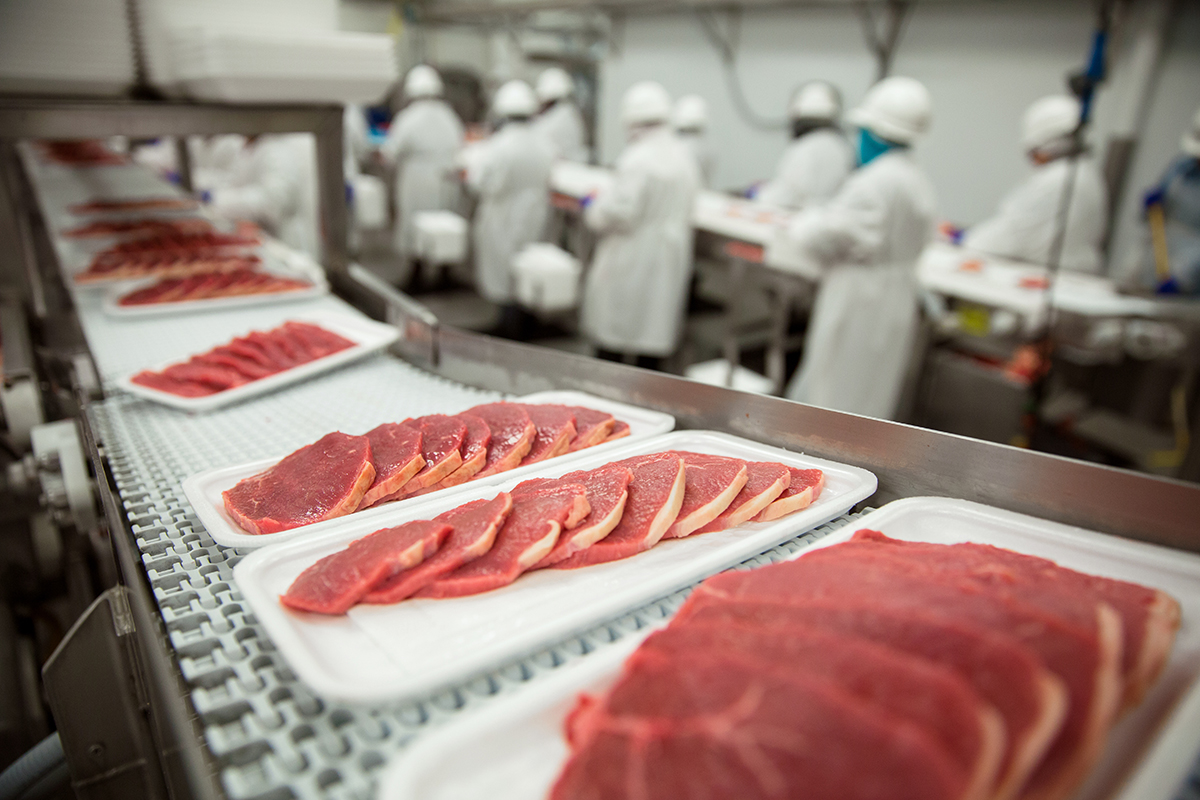San Francisco Examiner: Most meat, poultry purchased by SF departments treated with antibiotics

A 2017 law requires city departments to start disclosing data on meat purchases and antibiotic use to address the growing threat of antibiotic-resistant bacteria. (Courtesy photo)
by Joshua Sabatini | May 12, 2018
City departments tasked for the first time with tracking antibiotics used in the production of the meat and poultry they purchased struggled to get accurate information from suppliers, according to a report.
San Francisco passed a law late last year requiring city departments to start disclosing data on meat purchases and antibiotic use to address the growing threat of antibiotic-resistant bacteria. Health organizations say the missue of antibiotics in livestock for disease prevention and growth promotion have contributed to the alarming health risk.
The first required reporting shows The City spent at least $986,000 on meat and poultry last year across four city departments and “the vast majority of meat and poultry purchased was raised with antibiotics,” or more than 90 percent, according to a report from Deborah Raphael, director of the Department of the Environment.
Moreover, the city departments faced “several challenges in collecting reliable data,” including differentiating the types of antibiotics used, according to Raphael.
The main concern isn’t all antibiotics, but the “routine use of medically important antibiotics,” the same drugs used to treat bacterial infections in people.
“Some meat and poultry vendors who were asked for details regarding the use and types of antibiotics administered to their animals simply did not engage in the discussion,” Raphael said in the report. “This may reflect a lack of tracking systems across most of the meat and poultry industries or potentially fears about repercussions from consumers concerned about antibiotic use.”
She added that “most meat and poultry suppliers don’t track antibiotics usage for individual animals, making reporting on these practices challenging.”
Some departments did better than others in obtaining data. The Juvenile Probation Department was able to report that “100 percent of its chicken products received non-medically important antibiotics, and fewer than 3 percent of these chickens received medically important antibiotics.”
The reporting is required under San Francisco’s Antibiotic Use in Food Animals Ordinance, which was introduced by Supervisor Jeff Sheehy and passed into law in October 2017. The law also requires large grocers to report antibiotic use in the production of meat and poultry sold in their stores, but the proposed deadline for their first reporting isn’t until April 7, 2019.
Among the largest purchases of meat and poultry last year was $859,000 spent by the Public Health Department for San Francisco General Hospital and Laguna Honda Hospital. The Recreation and Park Department purchased nearly $60,000 of meat and poultry to feed families staying at Camp Mather. The Juvenile Probation Department spent $67,000 on meat and poultry. The Sheriff’s Department didn’t report its spending totals. Department of the Environment spokesman Charles Sheehan said the department requested the information of their jail food vendor Aramark but it wasn’t provided in time.
Among the report’s recommendations is to start including requirements in the city food purchasing contracts. ”Given how difficult it currently is for them to track how antibiotics are being used to raise poultry and meat animals, Departments should introduce terms to future contracts with broad line distributors,” the report said. “These terms would require that certain procured meat and poultry products, or a certain amount of these products, be raised without the routine use of medically-important antibiotics.”
City departments’ main concern with purchasing products raised without routine use of antibiotics was cost. They provided widely ranging estimates of how much more that would cost them, from a low of 10 percent to a high of 60 percent.
But Raphael recommended one solution: add more vegetarian items to the menu.
“Increase the percentage of meat and poultry purchased that was raised without the routine use of medically-important antibiotics, while purchasing more plant-based protein,” was one of the report’s recommendation.
Another way to reduce costs is to have one food contract among the four departments. “Currently, three broadline distributors serve the four City Departments (Sysco, Aramark and US Foods),” the report said. “There may be cost savings to be reaped from a joint contract with one broadline distributor for all four Departments.”
At the time of its passage, city leaders praised the law as the first of its kind in the nation. “This is the first time some of these questions are being asked,” Sheehan said. “Vendors aren’t used to accounting for this information.”